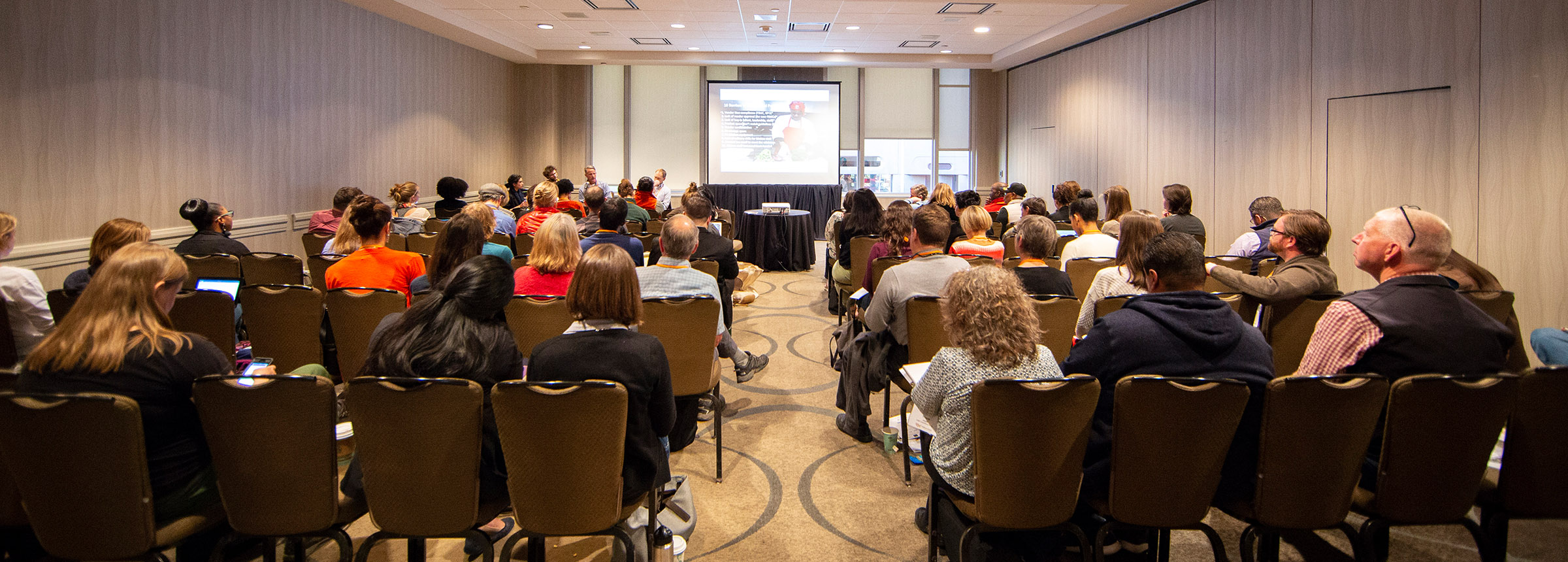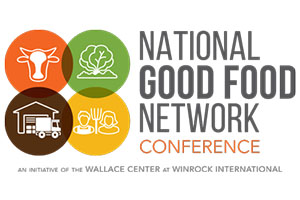
Half Day Trainings
 Building a Collaborative and Leaderful Organization
Building a Collaborative and Leaderful Organization
Do you want to collaborate more effectively with your colleagues and partner organizations? Would you like to see everyone on your team stepping into leadership and bringing the full capacity of their intelligence and creativity to their work? In this interactive workshop, we will share successes and challenges from the Biodynamic Association’s 5+ years of action research developing a living, evolutionary and highly collaborative way of working. We will share specific tools for collaborative decision making, defining roles and responsibilities, managing and communicating about projects and tasks, creating a healthy organizational culture with a geographically distributed team, determining how much each person is paid, and developing clear and mutually beneficial partnerships with other organizations. We will also discuss the benefits and drawbacks of these emergent ways of working in relation to fostering diversity, equity, inclusion, and social justice within an organization.
Presenters: Thea Maria Carlson, Executive Director, Biodynamic Association, Raphael Guzman, Biodynamic Education, Conference Volunteer, and Special Events Organizer, Biodynamic Association
Equity, Power Sharing and Authentic Engagement with Communities
Equity and inclusion are essential to sustainable economic and community development. It’s what we all say we want for our local food systems. How do we get there? As funders, program designers, and policy makers, both strategy and everyday decisions have an impact – we can perpetuate or challenge the status quo as we build new food systems. We know that we cannot do the same things over and over and expect a different result – it’s time to take up the challenge. This workshop prepares participants to engage inclusively with whole communities, and to co-create the future of local food systems programs, organizations, and enterprises. We will teach tools to increase awareness of racism and its impacts, and examine community engagement strategies rooted in respect and shared power. We will explore the power dynamics and implications of practical, daily decisions in this process. Participants will develop an actionable blueprint for equitable, authentic engagement with diverse communities.
Presenters: Sagdrina Jalal, Founder & Community Organizer, Taproot, Susan Pavlin, Founder & Principal, Taproot
The Culture of (In)equity
This session is an active conversation on the need to address white supremacy culture in order to effectively implement equity and inclusion strategies. We will explore how to recognize and move away from “equity” as an abstract notion and instead implement it in daily management, operations and institutional practices and innovations. We will also discuss the need of an institution to account for past harms and how to set a path forward centered in equity.
Presenters: Esperanza Pallana, Senior Program Officer, Community Vision, Catherine Howard, Senior Vice President of Programs, Community Vision
Growing Resilient Cooperatives
How can a small-scale farmer or rancher access the same economies of scale and achieve the same market saturation as their much larger competitors? By Cooperating! Cooperation- with other farmers, with customers, and with a range of community members- can help farmers achieve success as vital parts of the food system. In this workshop, co-op development experts and co-op founders from around the state will explore the many ways that cooperation can build strong, resilient farmer and rancher networks and walk through the nuts and bolts of the start-up process.
Presenters: Annelies Lottmann, Cooperative Development Specialist, Texas Rural Cooperative Center, Colin Cain, Director, Texas Rural Cooperative Center, Aisha Cruz-Reyes, Director of Special Programs, Center for Sustainable Agriculture and Rural Advancement
Fixing Your Cash Problems
Running out of cash is the primary reason most food businesses fail. Hubs, and the farms and food companies that supply them, all face significant cash challenges when they start and as they grow. These challenges are particularly acute when the businesses are minority owned or when they are Co-Ops or community or worker owned. The good news is there are ways to fix cash problems in businesses, and there are things businesses can do to significantly increase the likelihood that they can raise the money they need to cover their working capital needs. Participants in this session will learn ways to improve a Hub, farm, or food business cash position. They will also learn how to prepare to raise working capital from a wide range of sources.
Presenter: Tera Johnson, Director, Food Finance Institute
Your Hub is Subject to FSMA, Now What?: Practical Implementation Tools for Food Hubs
By now, most food hubs and food producers are aware of what is needed to comply with the Food Safety Modernization Act (FSMA) and understand where they fall under the Produce Safety Rule (PSR) or the Preventive Control for Human Food (PCHF). This workshop will take you beyond your compliance status and arm you with practical knowledge for developing a process flow diagram and conducting a hazard analysis at your food hub. Representatives from California food hubs will present examples from their operations, and Dr. Erin DiCaprio, Cooperative Extension Specialist in Community Food Safety at UC Davis, will discuss best practices for identifying allergen, sanitation, and supply-chain hazards and establish preventive controls in a real-world context. Using a model food safety plan designed specifically with food hubs in mind, participants will work in small groups to create their own flow diagram or preventive control for their hub.
Presenters: Erin DiCaprio, Cooperative Extension Specialist, Department of Food Science and Technology, University of California Davis, Gwenael Engelskirchen, Sustainable Supply Chain Analyst, UC SAREP, Erick Sanchez de Leon, Operations Manager at Mandela Partners Produce Distribution, Tracy Harding, General Manager, Capay Valley Farm Shop and Shira Tannor, Chief Administrative Officer, Veritable Vegetable
